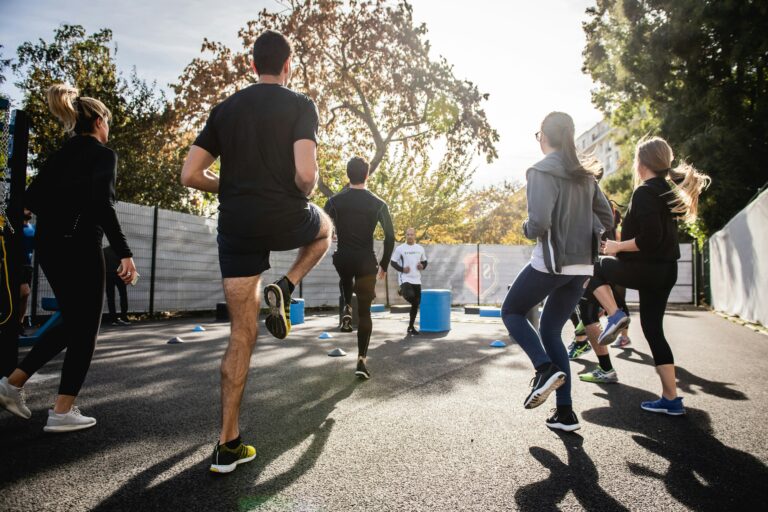Project Description
The global sports industry was valued at almost 500 billion U.S. Dollars in 2022, with the four most popular sports (soccer, cricket, field hockey, and tennis) each commanding an estimated fan base of over 1 billion people. Something these sports have in common is that they are all played outdoors, where players and spectators are exposed to the heat. Many of the biggest sporting tournaments and events are held during the hottest summer months across a range of global climates – including places in both hemispheres where extreme heat is common. Extreme heat can reduce the sporting performance of athletes, but also compromises their safety. Extreme heat also threatens the safety of spectators, particularly those travelling from cooler places where they are not acclimatised. One of the biggest challenges outdoor sport now faces is climate change, with extreme heat events becoming more frequent and intense. Even in the most optimistic future scenario, twice as many megacities could become heat stressed, exposing over 350 million people to deadly heat. How then will sport adapt? We have already seen several examples in recent years. These range from simple interventions such as in-play drinks breaks to the design of air-conditioned stadia. More dramatically, we recently saw the 2022 FIFA World Cup in Qatar moved from the traditional northern hemisphere summer to winter to escape the searing heat. Locations have also been shifted, with the Marathon event at the Tokyo 2020 Summer Olympic Games moved from Tokyo to the cooler city of Sapporo over 800 km further north. How much further might these changes go as climate change intensifies? Could we have sporting tournaments played out during the nighttime hours? Could the format of the sport change completely from outdoors to indoors? As the project title suggests, could we really have a World Cup in the Arctic? These are the kind of speculative questions this project will try to answer.
The project aim is to examine and visualise how a selection of the world’s most popular outdoor sports could adapt to extreme heat during the 21st century under different warming scenarios. The associated research objectives are as follows:
- To determine ‘sub-optimal’ and ‘dangerous’ climatic thresholds for athletes competing in sports, and spectators (at rest) based on controlled performance trials, expert focus groups, and data mining.
- To examine the spatial and temporal exceedance of the climatic thresholds established in objective 1 under baseline conditions and future scenarios of extreme heat based on observed and modelled climate data.
- To produce imagined visualisations and design scenarios depicting major sporting tournaments in a warming world based on codesign methods and use of GIS StoryMaps.
In addition to the range of transferable skills a QUADRAT DTP project provides, this project will ensure the student will graduate a versatile and well-rounded researcher with expertise and skills applicable to both the physical and social sciences.
CANDIDATE BACKGROUND
Essential Skills / Experience: 2.1 degree or higher in a physical sciences subject with relevance to climate and/or sport (e.g. biology, environmental science, geography, meteorology, sports science); practical experience in using computer models and/or analysing quantitative data.
Desirable Skills / Experience: An undergraduate dissertation relating to climate science and/or sports science; A Master’s degree; experience in using programming languages, e.g. Python, R.
Photo by Gabin Vallet on Unsplash
Supervisors
Donal MullanPrimary Supervisor: | Profile: Donal Mullan Email: D.Mullan@qub.ac.uk Institution: Queen's University, Belfast Department/School: School of Natural and Built Environment |
Catherine HamblySecondary Supervisor: | Profile: Catherine Hambly Email: c.hambly@abdn.ac.uk Institution: University of Aberdeen Department/School: School of Biological Sciences |
Additional Supervisor: | Dr Nuala Flood, Queen’s University Belfast, Architecture, School of Natural and Built Environment Email: N.Flood@qub.ac.uk
Dr Oliver Gibson, Brunel University, London Email: Oliver.Gibson@brunel.ac.uk |
References
Brocherie, F., Girard, O., Millet, G.P. (2015) Emerging environmental and weather challenges in outdoor sports. Climate 3 (3), 492-521.
Orr, M., Inoue, Y., Seymour, R., Dingle, G. (2021) Impacts of climate change on organized sport: a scoping review. WIRES Climate Change 13, e760.
Smith, K.R., Woodward, A., Lemke, B., Otto, M., Chang C.J., Mance, A.A., Balmes, J., Kjellstrom, T. (2016) The last summer Olympics? Climate change, health, and work outdoors. The Lancet 388, 642-644.
QUADRAT Themes
- earth-systems






















































